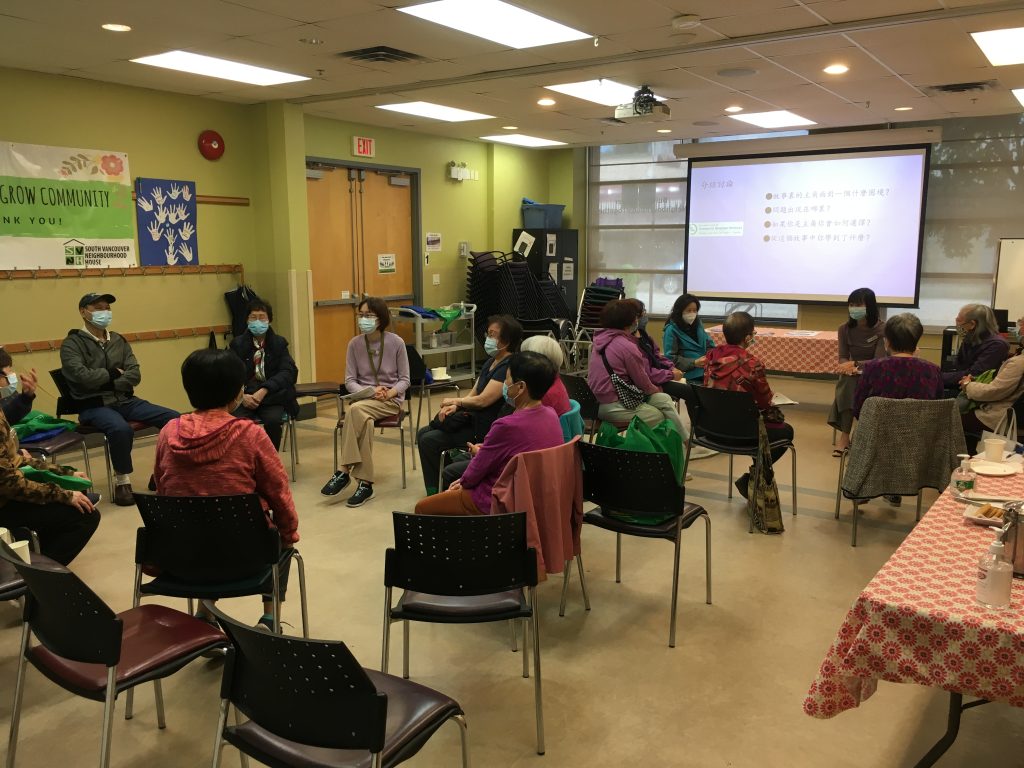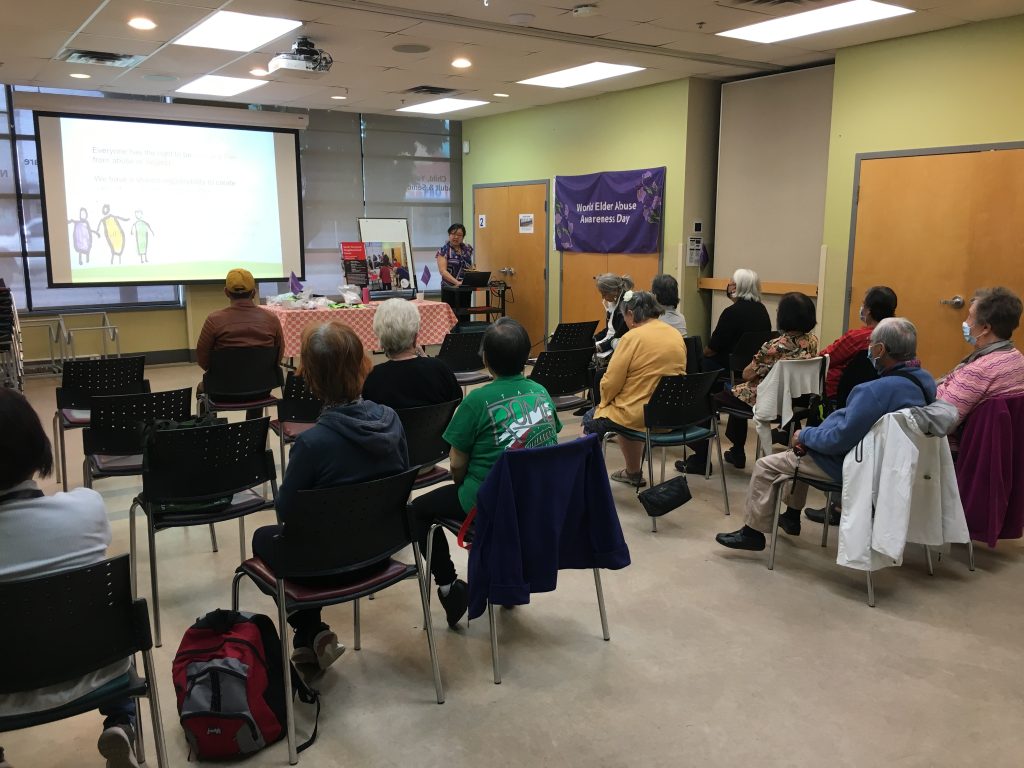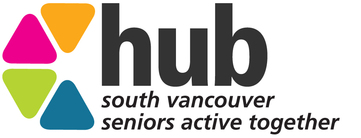WEAAD is marked each year on June 15. It is an official United Nations International Day acknowledging the significance of elder abuse as a public health and human rights issue.
Since 2006, communities throughout Canada and around the world have honoured this day to raise the visibility of elder abuse by organizing events to share information and promote resources and services that can help increase seniors’ safety and well-being. Elder Abuse networks and organizations are planning multiple WEAAD activities across the country to mobilize community action and engage people in discussions on how to promote dignity and respect of older adults.
SVNH hosted two workshops to increase seniors’ awareness for elder abuse this year.


For more resources, please see below.
Brochures
- Elder Abuse Awareness (Government of Canada web page)
- Responding to Elder Abuse: Resources (PDF, 297KB)
- Financial Abuse: Protecting British Columbia’s Seniors (PDF, 286KB)
- Are You Dating? Older Adults and Healthy Relationships (PDF, 270KB)
- How to Tell Someone You Are Being Abused: Starting the Conversation (PDF, 240KB)
- Seniors Abuse and Information Line (PDF, 2.3MB)
- Be Fraud Aware (PDF, 3.7MB) This information is provided by the BC Securities Commission
Fact Sheets
- Are you dating (PDF, 121KB)
- How to tell someone you are being abused (PDF, 112KB)
- Responding to Elder Abuse (PDF, 110KB)
- Financial Abuse (PDF, 112KB)
Where to Get Help
Emergency
If you or someone you know is in immediate danger, dial 9-1-1 or call the emergency number listed in the front of your phone book.
For non-emergency situations, referrals and information:
Seniors Abuse and Information Line (SAIL)
The Seniors Abuse and Information Line (SAIL) is a safe, confidential place for older adults and those who care about them to talk to someone about situations where they feel they are being abused or mistreated, or to receive information about elder abuse prevention.
- Toll-free: 1-866-437-1940 or 604-437-1940 in the Lower Mainland.
- Available 8:00 am – 8:00 pm daily (excluding holidays).
- Website: Seniors Abuse and Information Line
VictimLink BC
If someone is abusing or neglecting you or someone you know, you can call VictimLink BC. VictimLink BC is a confidential telephone service available across B.C. and Yukon 24 hours a day, seven days a week.
VictimLink BC provides information and referrals to all victims of crime, and crisis support to victims of family and sexual violence.
- Toll-free: 1-800-563-0808
Email: VictimLinkBC@bc211.ca
Website: VictimLinkBC
Interpreter services are available in more than 150 languages upon request, including many North American Aboriginal languages.
Assisted Living Registrar
If you believe someone is being abused or neglected in an assisted living facility, contact the Assisted Living Registrar (ALR). The ALR investigates complaints about the health and safety of assisted living residents.
- Call toll-free at 1 866 714-3378 or 250 952-1369 in Victoria.
- Fax: 250-952-1119
Email: hlth.assistedlivingregistry@gov.bc.ca
Website: Assisted Living in BC
Community Care Licensing Offices
Community Care Licensing Officers investigate complaints about the health, safety or well-being of a person in care at a licensed community care facility. “Community care facility” is a facility that where adults reside and receive care: hospice (end of life care), mental health and substance use, long term care (also known as extended care or residential care), community living for people with developmental disabilities, and acquired injury.
Call Enquiry BC at 1 800-663-7867 and ask to be connected to your health authority’s Community Care Licensing Office.
For more on licensed community care facility complaints, and contact information for licensing offices in your area, please visit:
Ministry of Health: Community Care Licensing Complaints

